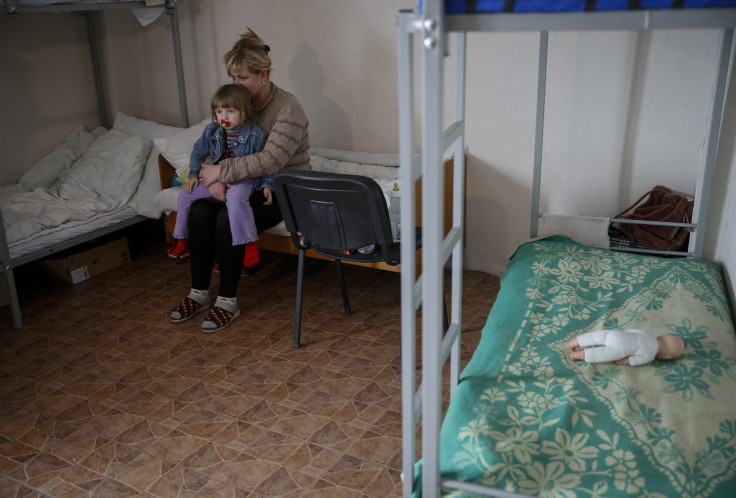Lithuania Suspends Asylum Applications For Ukrainians Fleeing War

For the more than 1 million displaced people who have fled the eastern Ukraine war since it began more than a year ago, Lithuania will no longer be a place to seek asylum after the Baltic country suspended applications. Lithuanian authorities hope that Ukraine will take the initiative and find havens for displaced civilians in other areas of its own territory, according to the news portal Delfi.lt.
"If it is determined that these people have a real opportunity to move and settle in other regions of Ukraine in order to be in safety, it will inevitably affect the decision on whether to grant asylum to citizens of Ukraine fleeing from the military actions," said the head of the Department of Asylum of Migration Department of Lithuania, Viktor Ostrovnoy.
While the number of Ukrainians seeking asylum in Lithuania over the last year has been small, only 70 in total, it did represent a significant increase from years past when the number of asylum seekers did not normally exceed five. According to Delfi, 31 people out of the 70 were granted asylum in Lithuania last year. Most of them stated in their applications that they were trying to flee the war in eastern Ukraine.
During the yearlong war between Kremlin-backed pro-Russian rebels and the Ukrainian army, around 300,000 Ukrainians requested asylum in Russia, while more than 700,000 journeyed west towards Kiev and parts of Europe.
The U.N. refugee agency said that a further 300,000 have applied for asylum in non-EU countries such as Moldova and Belarus, but it has no solid figures. Asylum applications to other parts of the EU have multiplied from 1,060 in 2013 to 14,040 in 2014. France, for example, received around 1,415 applications, accepting just 35.

Italy, Poland and Germany each received more than 2,000 asylum applications from Ukrainian citizens in 2014, with Sweden also seeing a jump from 170 in 2013 to 1,320 in 2014, according to Eurostat.
Julia Zelvenska, a senior legal officer at the European Council on Refugees and Exiles, said many Ukrainians had been rejected because the war was a regional conflict and not countrywide.
“One of the main reasons people get rejected may be that many countries are not clear on how the situation developed and won’t issue decisions until it is clear how the Ukrainian situation is going to develop,” she told the French Local news site in March.
“European countries are also being very formalistic in the criteria for asylum,” Zelvenska added. “For example, they may say that there are options for alternative protection already within Ukraine. For people in the east, they may say that they could relocate to the west.”
© Copyright IBTimes 2025. All rights reserved.






















